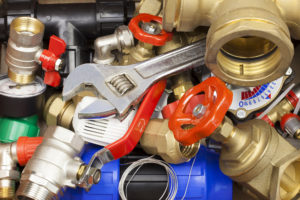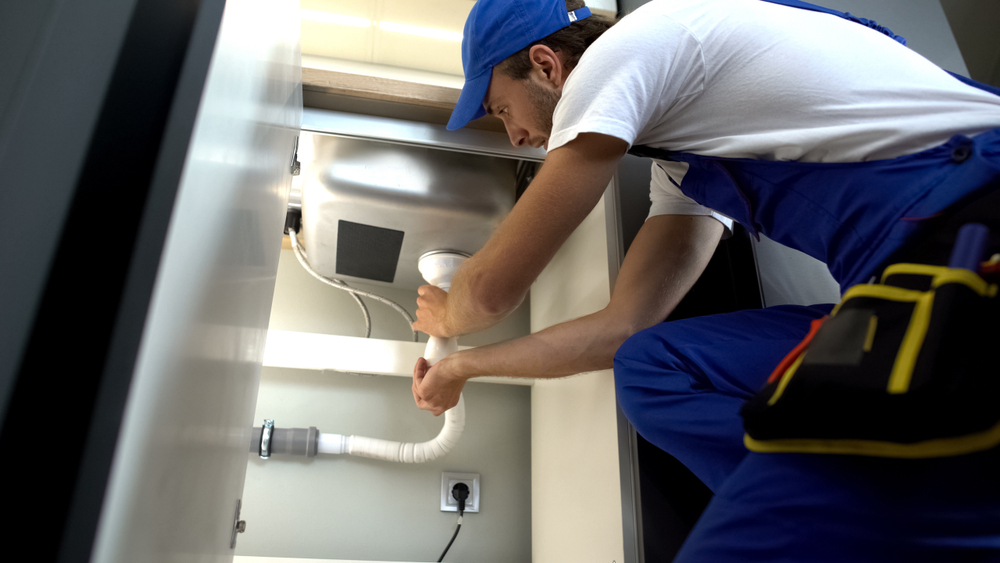Steps to Handle Urgent Pipe Problems with Effective Fixes Until Help Arrives
Steps to Handle Urgent Pipe Problems with Effective Fixes Until Help Arrives
Blog Article
In this article underneath you might get lots of excellent material pertaining to Expert Tips for Managing a Plumbing Emergency Until Help Arrives.

Plumbing emergencies can strike at any moment, triggering stress and possible damage to your home. Whether it's a burst pipeline, a stopped up drain, or a dripping faucet, knowing just how to manage the scenario up until a professional plumber arrives can conserve you from additional complications. This write-up offers essential emergency situation plumbing pointers to assist you mitigate damages and restore control during a pipes crisis.
Switch off the Supply Of Water
The very first step in any type of pipes emergency is to shut down the water system. For localized problems, such as a leaking tap or toilet, switch off the valve near the component. In the case of a significant leak or ruptured pipe, locate your home's primary water shut-off valve and transform it off right away. Knowing the area of these valves beforehand can conserve important time throughout an emergency.
Address Small Leakages with Temporary Solutions
Small leakages can rapidly become considerable problems if left untreated. Use these momentary fixes up until professional aid arrives:
While these solutions aren't permanent, they can assist minimize water loss and damage.
Unclog Drains Pipes Safely
A stopped up drainpipe can be a frustrating and unpleasant issue. Below's how to tackle it:
If these methods don't work, avoid utilizing extreme force, as it might aggravate the obstruction.
Manage Overflowing Toilets
An overflowing bathroom can trigger instant mayhem. Right here's what you must do:
Turn off Your Hot Water Heater
In specific emergencies, such as a burst pipeline, it's important to shut down your hot water heater. This avoids overheating or damages to the device when water quits streaming. Turn off the power supply to the water heater (electrical or gas) and allow it cool off to avoid potential threats.
Momentarily Stop a Burst Pipeline
A ruptured pipe can result in significant water damages in mins. To reduce the issue:
Call an expert plumber right away to deal with the trouble completely.
Take Care Of Frozen Pipeline Carefully
In cooler climates, icy pipes are an usual emergency situation. If you suspect an icy pipe:
Prevent Additional Damage
Taking fast action to minimize damages can save you money and time over time. Below's exactly how:
. Have an Emergency Situation Pipes Set
Prepare a standard pipes emergency set to take care of minor problems successfully. Your kit ought to consist of:
Having these tools handy can make a considerable distinction in your capability to take care of emergencies.
Know When to Call an Expert.
While quick fixes can aid briefly, specific pipes concerns require immediate specialist attention. Call a plumbing technician if:.
Quickly calling an expert makes sure the problem is solved appropriately and protects against further complications.
Conclusion.
Plumbing emergencies can be overwhelming, but with the right knowledge and tools, you can manage the situation effectively until help arrives. By turning off the water supply, addressing small leaks, and using momentary repairs, you can lessen damages and maintain your home safe. Bear in mind, these pointers are temporary solutions; constantly consult a qualified plumbing professional to deal with the source of the issue. Preparation and quick thinking are your best allies in any plumbing emergency.
8 Helpful Tips for Managing Plumbing Emergencies at Home
If your plumbing system hasn’t failed once, wait for it because almost everyone has a story to tell. Sometimes, it could be simple emergencies such as a leaking pipe, a blocked cistern, or even a big burst pipe. In situations like this, you need to have some handy tips to save you some money and from possible damages.
Take care of minor issues early.
Sometimes, you could have avoided an emergency by taking proactive measures while it was still early. Some major plumbing emergencies can be a result of an ignored minor issue. We recommend that you have items like plumbing tapes and other related items. A plumbing tape can allow you to manage minor leaks before the plumber arrives.
Cut off the water supply.
This tip is essential in almost any type of leakage problem. For problems like minor leakages in the toilet or kitchen, turn off the supply that takes water to the affected pipes. If the leakage is a major pipe, you must shut off the supply valve to the entire building. This will help you avoid flooding your home and neighbors if you share a flat.
Know your plumbing system
Folks typically move into a new apartment without understanding the water supply around the building. This can prove disastrous if a water emergency arises and the plumber is far away. The previous tip will prove useless if you don’t practice this one. More importantly, know where your water shut-off valve is located – you’ll need that knowledge to prevent potential home floods.
Have some common handy tools
There are lots of plumbing emergencies that you can handle without hiring a plumber. That’s why you must keep some tools available always. Some tools that you can use to fix simple plumbing emergencies easily include plumbing tapes, screwdrivers, thread seal tapes, plungers, pliers, tape measures, and rubber gloves.
Insulate your pipes from cold
You’ll save yourself from many plumbing expenses if you protect your water pipes from the cold. This is because of the harmful effects that cold weather can have on your pipes. During winter, your pipes can burst from being overly expected to freezing temperatures. So, make sure insulators are there to keep the pipes working correctly.
Avoid practices that will clog your toilet.
Many people indulge in practices that can damage the plumbing system of the entire building. One of these is when they use their toilet to dispose-off garbage. They flush all kinds of things, such as paper towels, bandages, hairs, female sanitary products, etc., down the toilet. This will block your toilet in the long run, incurring unnecessary expenditures. Dump such waste in the trash instead.
Check your dials regularly.
Sometimes, there could be leakages in your home without noticing them in time. So, constantly monitor your water meter dial. If the dial is reading when there is nobody using water, this is an indicator that there is leaking. Check for leaks immediately. Call a plumber as soon as possible if you can’t find any.
https://www.constructionplacements.com/8-helpful-tips-for-managing-plumbing-emergencies-at-home/

Hopefully you liked our topic about . Thank you so much for taking a few minutes to read through our piece. Sharing is nice. Helping people is fun. Thanks a bunch for being here. Kindly visit our site back soon.
Request Your Service Report this page